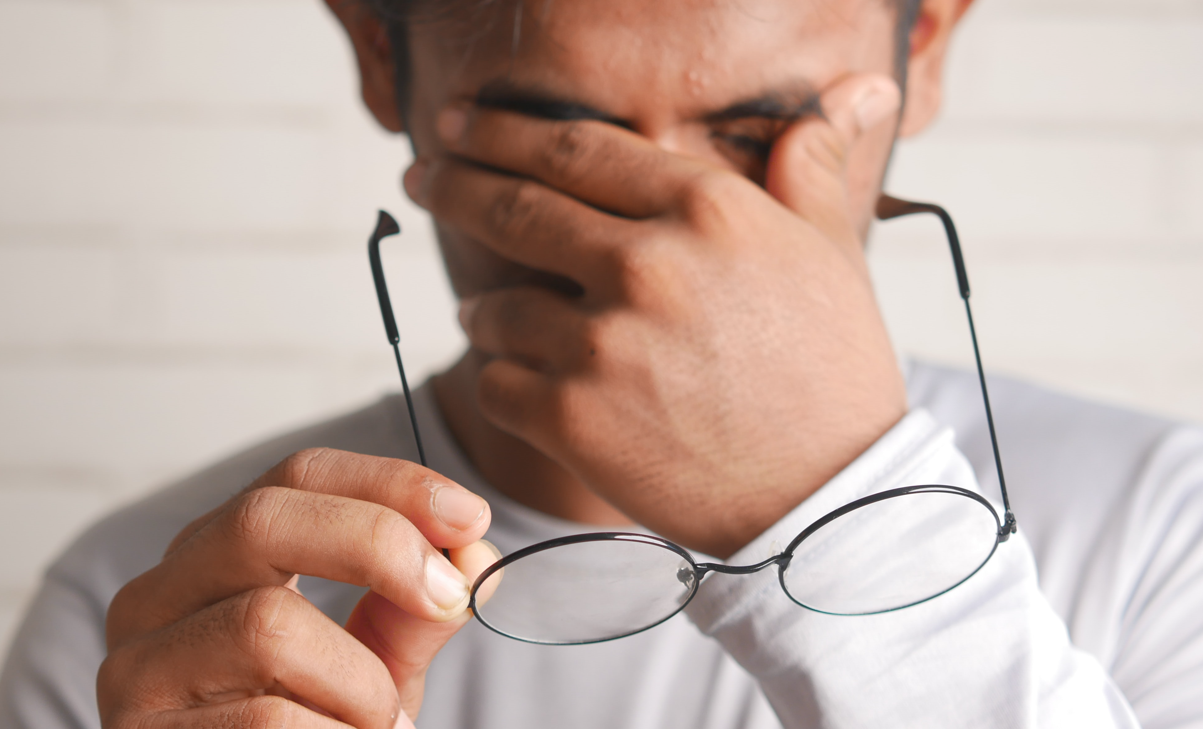Depending on factors such as life experience and outlook, cyberspace can be both friend and foe
By Wendy Haaf
The pandemic has prompted Canadians to spend increasing amounts of time on social media in even greater numbers than usual. So there may never be a more opportune time than now to explore what we know about the effects this pastime can have on our physical and psychological well-being.
Is social media an addictive time-thief that robs us of sleep, decreases our activity levels and leaves us prone to feeling envious, anxious and/or depressed? Or is it a technological tool that can help us not just stay connected with friends and family, but even strengthen our relationships? It turns out that there’s a bit of truth in both of those thoughts: Like many things in life, social media carries potential risks as well as potential benefits.
Social media and mental health
While researching his book Unsocial Media: Virtual World Causing Real World Anxiety (Wade Sorochan Communications, 2016), a lot of what mental-health advocate Wade Sorochan found was negative. The Edmonton author argues that while research has shown that an active social life has many benefits, particularly for those of us over 50, “when you’re on social media, you’re not getting that socialization. Only the real world can meet your social and emotional needs.”
For one thing, he says, “you can spend time scrolling through Facebook, and then, all of a sudden, three or four hours have gone by.” That lost time could have been better spent enjoying other, healthier activities, he notes. Moreover, as Sorochan explains, “social media trains us to compare ourselves with others and, as a result, maybe not appreciate our own lives.” The potential fallout from constant exposure to friends’ photos of their latest luxury cars (when you can’t afford to upgrade) and perfectly posed depictions of slim bodies on Instagram (when you’ve gained some pandemic pounds), Sorochan says, ranges from envy and depressive symptoms to body dysmorphia and, in extreme cases, thoughts of suicide.
According to Sorochan, social media can further harm older adults who’ve become somewhat isolated, because their social lives have already been curtailed by factors such as physical limitations. “Studies now show that social media can actually make your negative feelings worse,” he says. “You can feel more lonely, you can feel more isolated and you can experience anxiety and depression.”
Beth Campbell Duke of Victoria, B.C., who has been caring for her husband through his series of ongoing health issues, sees the emotional chaos that can result from the often less-than-social aspect of social media: “When you’re in distress—or ill or angry or confused or in chaos—and you’re tweeting” more to vent than to start a conversation or ask for information, “I think that can fuel anxiety,” she says.
The instant, easy access to our lives that social media offers people who don’t have our best interests at heart can also lead to emotional turmoil. Lisa Brandt of London, Ont., experienced this first-hand during her last job, working on a morning radio show. “It was my job to monitor social media,” says Brandt, who is now a freelance writer and voice-over professional. Her tasks commonly involved opening messages such as “You don’t deserve to be in this business—you suck.” Once, she even received a death threat via the station’s traffic-tips text line. “It really wears on you after a while,” she recalls. Brandt decided to quit and work for herself, in part due to the daily deluge of online vitriol. But the onslaught continues for the radio show: “The woman who replaced me has told me she goes home in tears sometimes,” Brandt says. “It’s absolutely brutal.”
Some research suggests such abuse can take a physical toll, too. According to a 2019 study of subjects aged 20 to 69, negative online social interactions predicted higher blood pressure and heart rate, both of which are risk factors for heart disease. Happily, Brandt hasn’t had similar problems with her own social-media accounts. Now that she no longer has to abide by an employer’s rules, she says, “I can just block somebody for being a jerk.”
Online misinformation
Campbell Duke notes yet another dark side of social media: the flood of health-related material, much of it conflicting, that can make it difficult to find the truth.
In fact, those of us who are 50-plus may be somewhat more susceptible to swallowing and disseminating this type of online misinformation and disinformation. For example, a study of online posts by 200,000 Ontarians— conducted on behalf of the Ontario Medical Association (OMA)—found that six percent of subjects passed along falsehoods about COVID-19 and the ensuing pandemic; these fabrications included the notion that hospitals were faking the number of deaths from the infection. However, of this happily small subset, “the vast majority were older men and women,” says Dr. Adam Kassam, the president of the OMA. “When we break that down even further, we see people between the ages of 55 and 64 were the most engaged online group for pandemic-hoax topics.”
Similarly, a study that looked at Facebook posts during the 2016 U.S. presidential campaign found that, while sharing fake news was a relatively uncommon practice, age was the biggest predictor of who did so. Over the course of the campaign, subjects older than 65 were found to have shared false stories at twice the rate of those aged 45 to 65, and at seven times the rate of users aged 18 to 29.
These findings may be somewhat due to the kind of information each individual person is being exposed to online: posts and articles generally are curated to the specific user via algorithms based on personal data harvested from the platform. As a result, our personal social-media feeds may reflect our biases and leanings, which may then be enhanced and reinforced over time. “You’re getting targeted not only to buy products, but also to convince you to think a certain way,” Sorochan says.
Scams and social connections
Our online footprints can also lead financial predators to our doors. For example, Sorochan explains, “seniors are particularly vulnerable because there are people who are targeting them for relationship scams. So they have to be aware of this risk—even more so than those in younger age groups.” And yet there’s evidence we’re actually less security-conscious than those who’ve racked up fewer birthdays. A 2020 census-based survey report from Ryerson University’s Social Media Lab found that 22 percent of respondents had never checked or changed privacy settings on their social-media accounts. For those aged 55 or older, that stat climbed to 33 percent.
Still, experience that comes with age may offer some protection against social media’s potential ills. A March 2021 Statistics Canada report based on a 2018 online survey of Canadians aged 15 to 64 revealed participants’ views on six possible consequences of social-media use: lost sleep, trouble concentrating on tasks/activities, reduced physical activity, anxiousness/depression, envy for others and frustration/ anger. Respondents 50 to 64 years old reported the lowest incidence of these issues. For one, 6.3 percent of this group admitted to anxiety/depression as a result of socialmedia use, while other age groups reported rates that were two to seven times higher. Online activity geared primarily towards connecting with family and friends also seems to reduce the prevalence of these negative side effects.
A boon for networking
Of course, social media has positives, too. Take Pat Rich, 64, an Ottawa medical writer and editor who says that, beginning in his early 50s, social media enabled him to reinvent himself professionally and position himself as a leader in his field. While working at the Canadian Medical Association (CMA), Rich was asked to create an internal social-media strategy for the organization. “The original CMA Twitter account was actually my personal account,” he says. Rich’s background as a headline writer and radio reporter was perfectly suited to the medium; he became one of the first people to start live-tweeting CMA meetings and medical conferences.
His expertise and reputation grew as a result, and eventually, he went to work for himself. “Social media is a great tool to help build a professional network,” Rich says. This type of online interaction has also offered him opportunities to learn how to write, edit and produce podcasts, as well as opportunities to do video editing. “Considering I’m over 60, I think that goes against the perceived age bias that only younger people would be doing this,” he says.
Beth Campbell Duke—whose social isolation as a result of dedicating her life to caring for her chronically ill husband simply folded into pandemic isolation—says social media has helped her keep in contact with the outside world. “It’s understandable: someone gets more and more ill, and you can’t keep up with social engagements,” she says. “But on social media, you can find people who are in a boat similar to yours.”
During a particularly harrowing crisis, when her husband was in the ICU, one of Campbell Duke’s online contacts asked if she’d read The Wounded Storyteller, a book by Arthur Frank that seeks to explore the human side of illness within our larger society. Never leaving her husband’s bedside, she ordered the book, had it delivered directly to her, and then read it over the course of a few days. “That was a lifesaver in the hospital,” she recalls. From that experience, she realized that she, too, wanted to help others in similar situations, so she created the consulting service Navigating Healthcare in Canada (navigatinghealthcare.ca).
Friends old and new
Social media can also help maintain and even strengthen relationships with friends and family. Soon after Windsor, Ont., retiree Helen Bratzel set up a three-way Facebook Messenger chat to plan a lunch outing with two new choir-group friends, the first pandemic lockdown was announced. Nevertheless, the three women kept up with one another using the online medium, communicating nearly every day, checking in and trading information, such as by sharing names of stores that had crucial supplies in stock. This soon led to weekly Zoom By Jacques Lessard get-togethers. “It really saved our mental health,” Bratzel recalls.
Social media also enabled Bratzel to continue supporting breastfeeding mothers as a volunteer for the NGO non-profit advocacy group La Leche League. And it helped her to stay physically active: She joined a Facebook exercise group for older adults, as well as a Zoom chair-yoga class. “Honestly, that’s kept me mobile,” she says.
Social media may also provide an avenue for meeting new people and creating new friendships, says Kelly Murphy, a psychologist at Baycrest Health Sciences in Toronto who offers memory intervention and brainhealth lifestyle education for older adults at risk for dementia. With that in mind, she and her colleagues created an online recreational activity called Art on the Brain, wherein participants access world-renowned works of art, listen to information about those works and the artists who created them, and then play puzzle and storytelling games intended to reinforce that new knowledge. “The storytelling segues into a mingle component,” explains Murphy, who says the pandemic and its ensuing social limitations were catalysts for the new program. “You can mingle by posting and reading stories and comments inspired by the artwork you’ve been visiting with.”
Feedback has been positive, with participants reporting not just that they enjoyed the activity, but that “it had a positive impact on their sense of well-being,” Murphy says. “I think it’s important for people to feel that what they have to say matters. Plus, the sense of community and belonging that’s created through those sorts of social interactions is a big draw.” The resulting boost in confidence, Murphy adds, can lead to more in-person interactions—when it’s once again safe to do so, of course.
A balance of factors
Whether social media is a force for good or ill likely depends on a variety of things, including life circumstances and personality. Among the most important, however, is how it’s used. As Robert Kent de Grey—a University of Utah social neuropsychologist and the lead author of the previously noted 2019 study that tied online negativity with poor health outcomes— summarized in a Twitter thread: “Passive social-media behaviours, such as endless scrolling and liking posts, can be unhealthy. But active behaviours that foster interpersonal connection, such as using a post as a way to start a one-on-one conversation, can be healthy!”
Photo by Luis Cortés on Unsplash






